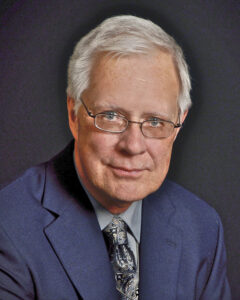By Greg Cusack
Guest Column
While I applaud the many women who have acted bravely in daring to accuse powerful men of acts of sexual predation and/or violence against them, I am troubled by the reception they often receive.

They are either shamed by those who accuse them of lying and of seeking to destroy the reputation and career of “a good man,” or their claims are largely believed and the accused man is viewed as guilty. However, as far as I know, only one public figure accused of such behavior — Bill Cosby — has actually been found guilty through the process of law.
As in so many instances of our troubled civic discourse these days, compassion and reason take a back seat to anger and tribalism. Too many of us react differently depending upon who is being accused: is the alleged violator on “my” side or “yours?”
Long before the #Me Too movement encouraged women to come forward, some women friends helped me to better understand the trauma of undergoing an assault and the struggle to report it. When even mature women have to wrestle with the possibility of public shaming, it is much more difficult for a younger girl or woman. They are aware of the multiple deep biases in our culture that work against women being believed: What was she wearing? Had she been drinking? Perhaps she hadn’t been clear or firm enough?
The dice are loaded against women in multiple ways: “Boys will be boys.” Girls (and women) must be the ones to place limits on behavior. Males view that “no” means, at worst, “maybe.” The pervasiveness of sexuality in our culture: in advertising, comedy routines, manner of dress and behavior of pop stars and “major” personalities. Ignorance about the trauma that sexual predation inflicts upon girls and women.
If we men are honest with ourselves, we can easily recall the many times that we heard acquaintances or friends — and not necessarily from our youth —discuss women in less than respectful terms or boast of alleged conquests.
Some women are harsh towards women who come forward, too. Tribalism is part of it, but there is, to be fair, another side. Many women have not only internalized the message that responsibility is the female’s job, but they remember knowing, or hearing about, girls or women who were “easy,” who actively pursued men and who boasted of and used their sexuality to “get what they wanted.”
How, they might ask, can we be sure that today’s accuser is not just someone “trying to get even” when an affair or relationship that once worked for them no longer does?
We desperately need to hear and listen to women telling their stories with respect, compassion and in withholding judgment. How can we handle the explosive consequences of charges of sexual impropriety in the public sphere in a way that is fair to both accuser and accused so that we avoid any “rush to judgment” in the court of public opinion?
While we all know that, under the law, we are “innocent until proven guilty,” most of us can quickly form an opinion of another’s guilt or innocence based upon passionate charges or incriminating evidence.
No act of uninvited sexual attention is ever acceptable. It is also imperative that we distinguish between the more minor violations, such as repeatedly asking someone out over their expressed non-interest or an isolated instance of an inappropriate touch or suggestion, and much more serious cases that involve uninvited sexual acts, violence and/or repeated patterns of behavior.
It is equally important to distinguish between offensive words or acts that occurred in youth and those committed by adults. The same behavior at age 16 should be regarded as much more serious at age 35, for instance.
I also caution against assuming that all accused offenders, even those legally found guilty, are lost or irredeemable. Although some kinds of sexual predation cannot be cured, we can reform many patterns of speech and behavior that were culturally acquired.
I hark back to the passage from John’s Gospel where a woman caught in the act of adultery is hauled before Jesus and he is asked to pronounce judgment on her. His calm response was, “Let the person among you without sin cast the first stone.” I don’t know about you, but I’m in no position to even cast a pebble!
We need to empower girls and women and better teach our boys and men, both in words and in our lived principles of behavior. We must respectfully correct each other when we notice failings and boldly call out those who are in positions of power and influence.
(Greg Cusack taught college, served on the Davenport City Council from 1969-73, and the Iowa House of Representatives from 1971-81. He then served as executive director of National Catholic Rural Life Conference from 1981 until late 1986. His public service continued in other areas until he retired as Chief Benefits Officer of the Iowa Public Employees Retirement System in 2004.)











